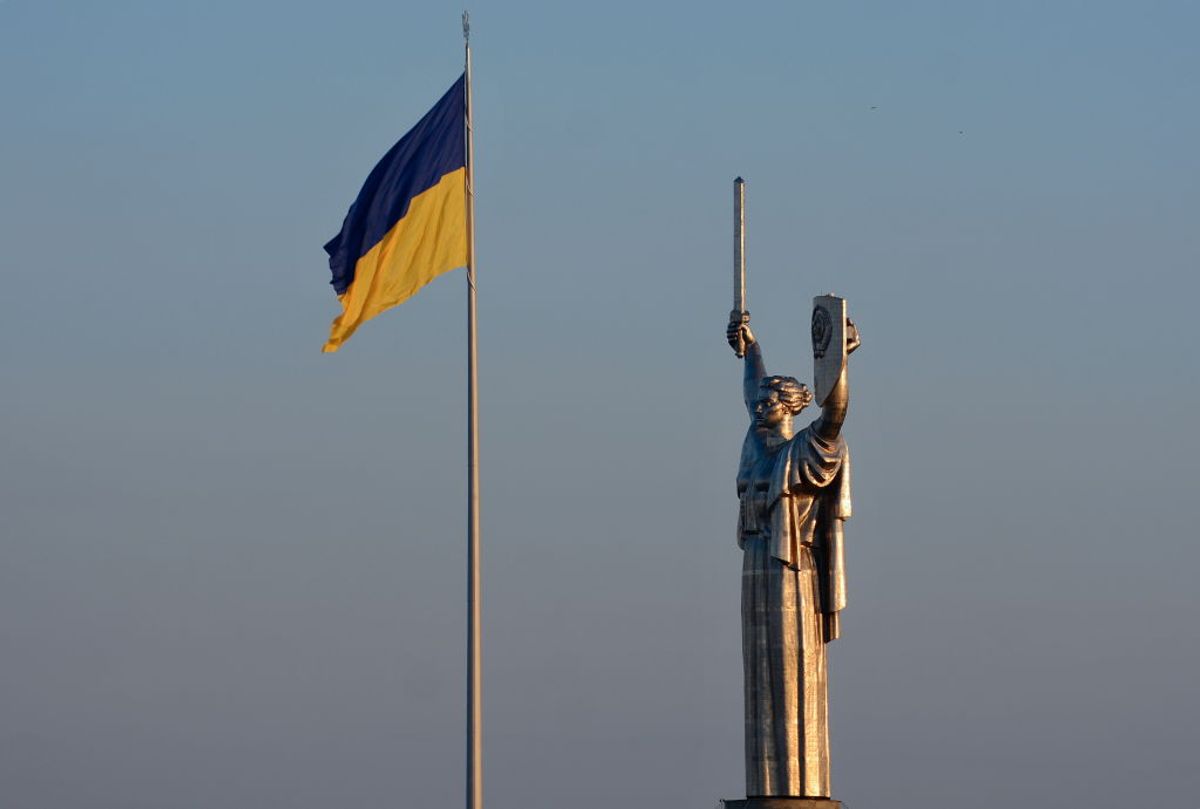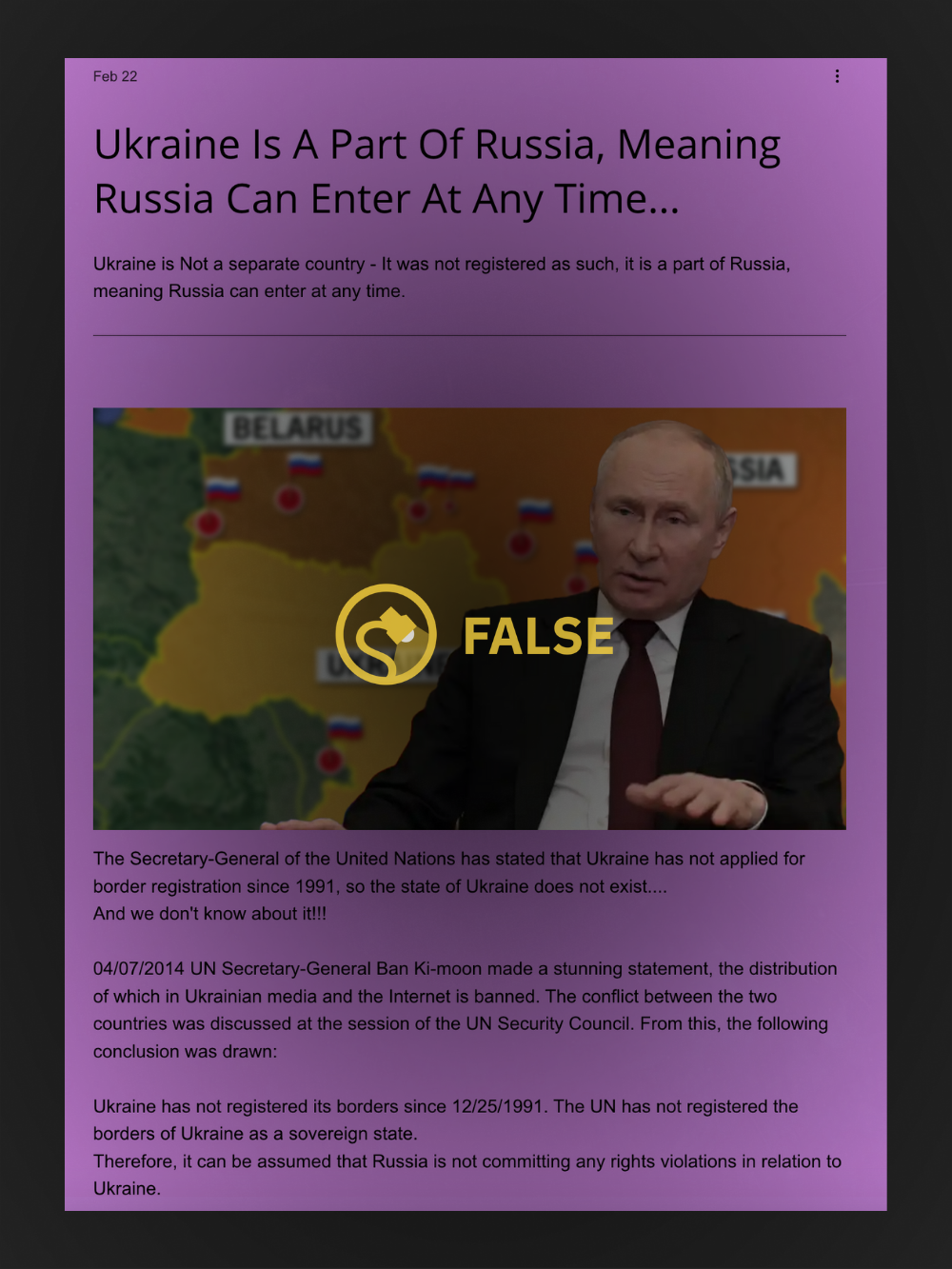Curious about how Snopes' writers verify information and craft their stories for public consumption? We've collected some posts that help explain how we do what we do. Happy reading and let us know what else you might be interested in knowing.
During the early days of Russia's invasion of Ukraine, in March 2022, social media users enthusiastically shared a lengthy post that claimed back in 2014, United Nations (U.N.) Secretary General Ban Ki-moon had declared Ukraine was not a independent state, and as a result, Russia's military aggressions there eight years later were justified.
Several Facebook posts, dated late February and early March, contained versions of the same post, which typically began as follows:
The Secretary-General of the United Nations has stated that Ukraine has not applied for border registration since 1991, so the state of Ukraine does not exist....And we don't know about it!!!...
The earliest version we could find was posted by conspiracy theorist Simon Parkes, on Feb. 22:
To the untrained eye, the post might have appeared authoritative, with its citations of specific dates and self-assured discussion of various texts and reference points such as, "According to the CIS Treaty," "Under international law," and "According to the Budapest Memorandum..."
In reality, the screed was inaccurate, incoherent gobbledygook. Ukraine is indeed an independent nation-state, and has been universally recognized as such since 1991. We are issuing a rating of "False."
Why Ukraine is a Sovereign Nation State
Article 4 of the UN Charter of 1945 sets out the requirements for membership in the U.N.:
- Membership in the United Nations is open to all other peace-loving states which accept the obligations contained in the present Charter and, in the judgment of the Organization, are able and willing to carry out these obligations.
- The admission of any such state to membership in the United Nations will be effected by a decision of the General Assembly upon the recommendation of the Security Council.
Two of the founding members of the U.N. were the Soviet Union and Ukraine — then known as the Ukrainian Soviet Socialist Republic (SSR).
In August 1991, upon Ukraine's declaration of independence, the Ukrainian SSR's representative to the U.N., Hennadiy Udovenko, informed the U.N. that the country's new name was, simply, Ukraine. There was no other change to Ukraine's membership of the U.N., which was retained in 1991, nor its status as a sovereign state. Nor was there any requirement for Ukraine to "register its borders."
Furthermore, the U.N. lists Ukraine as one of its members — a prerequisite for which is the status of independent state — and former Secretary General Ban Ki-moon has, of course, repeatedly referred to Ukraine as an independent state. So too has his successor, the current U.N. Secretary General António Guterres, who said just this week, in the context of Russia's invasion, "The territorial integrity and sovereignty of Ukraine must be respected in line with the UN Charter."
The CIS Charter, which established the post-Soviet Commonwealth of Independent States, makes no reference whatsoever to the territorial integrity or sovereignty of Ukraine.
The Budapest Memorandum was a 1994 agreement between the U.S., U.K., Russia and Ukraine, which had to do with nuclear non-proliferation and the thorny question of how to manage Ukraine's decommissioning of its nuclear weapons, in the post-Soviet era.
Not only does the Budapest Memorandum not state that "Ukraine has no borders," as Parkes' post bizarrely claims, it actually required the signatories — including Russia — to re-affirm the very opposite:
The Russian Federation, the United Kingdom of Great Britain and Northern Ireland, and the United States of America, reaffirm their commitment to Ukraine...to respect the independence and sovereignty and the existing borders of Ukraine.



